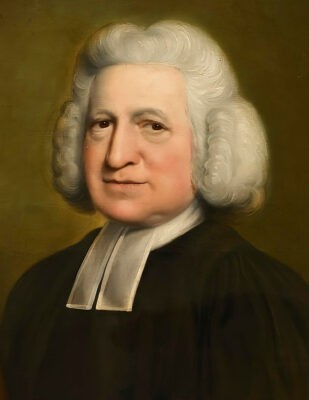The Story Behind: Come, Thou Long-Expected Jesus
by Don Chapman
Among the most beloved Christmas carols, “Come Thou Long-Expected Jesus” powerfully captures the Advent themes of waiting, preparation, and hopeful anticipation. Though over 275 years old, this hymn by the prolific hymn writer Charles Wesley continues to speak to the deep needs and cries of humanity while renewing our faith in Christ’s coming.
Charles Wesley’s Inspiration and Context

In 1744, Charles Wesley penned the profound lyrics of “Come Thou Long-Expected Jesus” which would soon be published in his collection, “Hymns for the Nativity of Our Lord.” Just a year earlier, Wesley had been ordained in the Church of England and was tirelessly preaching the gospel message across Britain alongside his brother John Wesley, the co-founder of Methodism. Having seen firsthand the needs of the poor and marginalized in British society, Wesley was inspired to write hymns that would prepare hearts for the coming of Jesus at Christmas.
Meaningful Lyrics for Advent
Israel’s strength and consolation,
Hope of all the earth Thou art;
Dear desire of every nation,
Joy of every longing heart.
Though rather short, the two stanzas of “Come Thou Long-Expected Jesus” are rich in meaning. Drawing upon Old Testament prophecies and the anticipation of the Messiah, Wesley put himself in the place of the Israelites who had long cried out for a Savior. “Come, thou long expected, born to set thy people free” captured that collective hope. The lyrics present Jesus as the fulfillment of hope – the desire of every nation. Yet Wesley looked beyond Christ’s first coming in Bethlehem to His future return. The hymn is both a preparation for the nativity of Jesus and a longing for Christ’s kingdom.
Timeless Relevance
The timeless relevance of the hymn rests in how it voices the universal hopes and cries of every heart, then and now. We all desperately need the very things Christ offers – freedom, strength, peace, consolation. As we sing, we identify with those ancient Israelites who yearned for messianic deliverance. And we are reminded that in Jesus our deepest cries will be met.
Growing Popularity and Inclusion of Come Thou Long-Expected Jesus
Though relatively unknown early on beyond Methodist circles, the hymn gained wider popularity when Charles Spurgeon used it in a London Christmas sermon in 1855 at age 21. Spurgeon included the lyrics to illustrate how Jesus was the only one “born king” without first being a prince. In the years after, it was included across denominations in British hymnals and services. By 1875, it was added to the Methodist Wesleyan Hymn Book, now paired with the tune “Cross of Jesus” by John Stainer.
Poetic Use of Repetition and Prayer
Born Thy people to deliver,
Born a Child and yet a King,
Born to reign in us forever,
Now Thy gracious kingdom bring.
Part of its endurance is the brilliant use of repetition. In just two stanzas of eight lines, Wesley repeats “born” four times, highlighting Christ’s mission – to deliver, to reign, to set free. Its urgent petitions beckon us to call on Christ. Wesley adapted a prayer into a fervent hymn: “Come, rule in all our hearts alone; by Your merit, raise us to Your glorious throne.”
Memorable Melodies
The hymn has been set to various tunes over the centuries, and it is unknown which one Wesley originally intended. One of the first is believed to be “Stuttgart” written in 1716 by German composer Christian Friedrich Witt. This stately tune suits the lyrical longing expressed in the hymn.
Later in the 1800s, Welsh musician Rowland Hugh Prichard paired the lyrics with his stirring melody “Hyfrydol” (meaning “beautiful” in Welsh). Prichard composed this tune before he was twenty years old for his children’s songbook “Cyfaill y Cantorion” (“The Singers’ Friend”). Prichard’s memorable tune also appears with Charles Wesley’s famous hymn “Love Divine, All Loves Excelling,” tying together two of Wesley’s most beloved lyrical works.
A Timeless and Moving Classic
By Thine own eternal Spirit
Rule in all our hearts alone;
By Thine all sufficient merit,
Raise us to Thy glorious throne.
Though written over two centuries ago, it retains its beauty, meaning, and ability to draw people to Jesus. Its rich theological depth and poetic language remain unparalleled. Singing it renews our hope in the Messiah who came long ago and who will one day return as King. It allows Jesus to rule in our hearts now, giving strength and joy. For these reasons, congregations continue to be moved by its lyrics and melody. It rightfully takes its place among the truly timeless, classic Christmas hymns.
Conclusion: An Advent Hymn for the Ages
The days in which it was written were marked by poverty and ills, yet Charles Wesley’s magnificent hymn reaches across time with a message for all. When sung in unison, it unites our voices in transcendent faith. We identify with all those, past and present, who cry out for deliverance, consolation, and hope. And we exalt the Savior who alone meets these needs – Jesus Christ, the desire of every nation.
Frequently Asked Questions (FAQs)
What hymns are set to Hyfrydol?
In addition to “Come Thou Long Expected Jesus,” the tune Hyfrydol is also used with Charles Wesley’s famous hymn “Love Divine, All Loves Excelling.”
What does Hyfrydol mean in English?
The Welsh word Hyfrydol means “beautiful” or “melodious” in English.
New Third Verse
The third verse you hear in the vocal demo is written by Don Chapman for his new arrangement.
Download sheet music, chord charts, tracks and multitracks for Come Thou Long-Expected Jesus exclusively here at Hymncharts.com and Worshiphymns.com. You won’t find this arrangement on any other websites.


